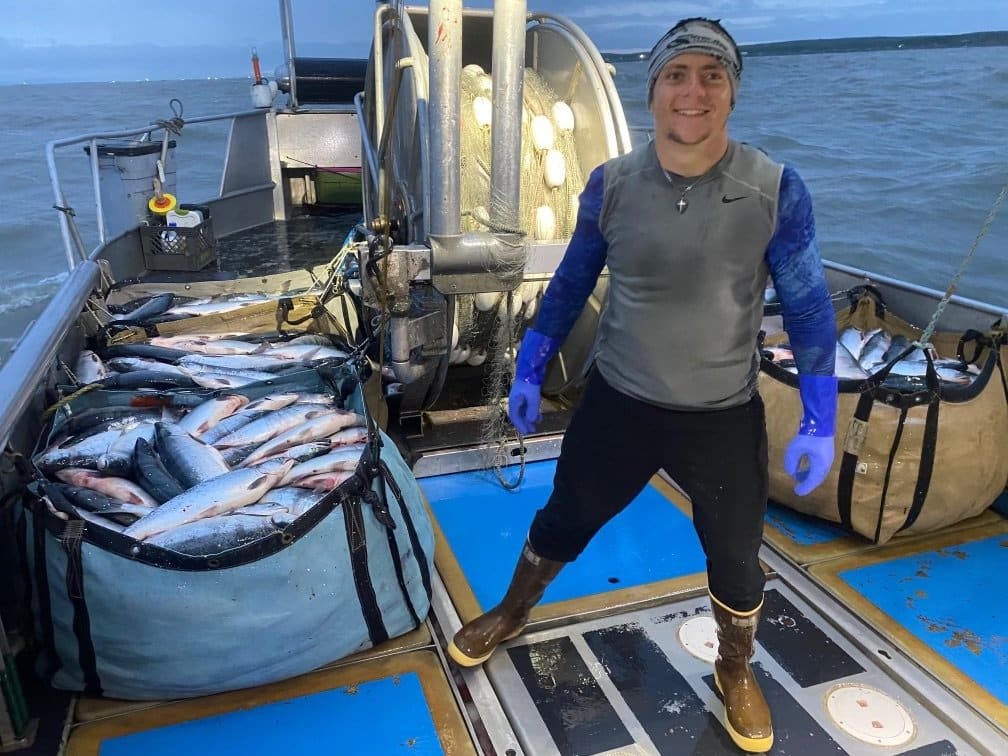
Drop the nets, cash the checks
Mary Margaret Flook, Contributing Writer
I rolled over in bed and checked my watch to see what time it was. I could hear the wind howling outside and I dreaded the damp clothes I would be in for the remainder of the day. My arm ached and my eyes were heavy. The only three people I had to communicate with were the same three people I was sick of talking to. And then I remembered my reason for being on the boat, so I tossed the net of discontentment to the side and arose to my feet to catch some fish.
Spring is the conclusion of winter and the prelude to summer. Summer jobs vary from kid’s camps to pizza places and hamburger joints. Seasonal cashiers submit their resumes and camp counselors dye their hair in hopes of being the coolest counselor of the summer. More than half of college students participate in an internship. According to the Center for Research on College Work Force Transitions, 61% of graduating seniors took part in an internship during college in 2017. Yet some students seek out unusual jobs.
Photo courtesy of Jesse Haack.
One unusual job is working for the fishing industry in Alaska. Some workers choose to work in fishing plants, while others live on a boat for weeks at a time catching fish. One student, Jesse Haack, began his summer job in Alaska first working a plant and then the following two summers on a fishing boat.
Haack’s initial interest in Alaska, as well as the potential for a well-paying job led him to apply for a salmon processing position. “They’ll take anybody.” Haack said. At these plants housing and meals are provided and shifts last 16 hours divided up into four-hour blocks. Departments include the filleting department, the slime lime (gutting the fish and removing its head), “Vac Pac” (packaging the fish), and the packing department where workers load the fish onto semi-trailers. By the end of the week a worker can earn over $1600 due to the number of hours worked.
The following summer after Haack’s first experience in Alaska, he landed a job on a 32 ft. long salmon boat with Captain Dan Smith and two other fishermen. Each day the crew would drop their net (which was roughly four football fields in length) in the water, to snag some salmon. “The whole job is the net comes on board with hydraulics and then you pick the fish out of the net with your hands and with the fish pick. Then they sit at your feet until either the whole net is emptied or you’re putting them away as your fishing and as your catching them,” said Haack.
Photo courtesy of Jesse Haack.
According to Haack, the hardest part of the job is the lack of sleep and irritability that grows amongst the crew members due to the high stress environment on the boat. Yet, the profit earned and the adventurous side of the job make it worthwhile.
Fishing is done in periods. There are certain time frames anywhere from 6 hour to 12 hour time slots in which fisherman are allowed to drop their nets. At the end of the period the crew ties up to a boat called the Tender where their salmon gets weighed. This weight determines the amount of pay received at the end of the season.
Photo courtesy of Jesse Haack.
Haack says he would recommend this job to others if they are willing to work hard. For Haack, hours on a boat all summer can be challenging and stressful, but his faith allows him to get up each morning on the boat with a purpose. “Knowing that I have more of a purpose than being there and fishing and earning money, that helps. There is something eternally meaningful about what I’m doing; I get to share the gospel.”
As students wrap up another year of education and spring turns into summer, new job opportunities continue to arise. Students will continue to seek meaningful and impactful ways to spend their summers. Yet one thing is consistent. Salmon will continue to swim upriver to spawn, only to be caught into a net and cashed in the bank. Who will be the next fisherman to drop the net and join the crew?



